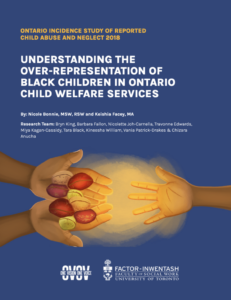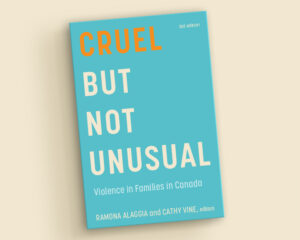Children and their families
 From emerging global health issues to the complex role of social media in how we live to cuts in public education and social programs, children and their families face new and difficult pressures.
From emerging global health issues to the complex role of social media in how we live to cuts in public education and social programs, children and their families face new and difficult pressures.
The Children and their Families field of study prepares students for practice with children and their families at various levels of intervention — from individual and systems work, to community practice and program and policy development. This field of study is informed by a social ecological/developmental model that considers children as dynamic individuals interacting with their environment.
Given the central role that families play in a child’s socialization and other systems that impact children and adolescents, building on family strengths is key to achieving positive child and youth outcomes. The developmental perspective adds an understanding of child functioning, critical stressors, protective factors, and sites of resilience in children, youth and their families. A trauma informed lens highlights the prevalence and impact of adverse childhood events and experiences of trauma.
Approaches taught are informed by current research evidence and empirically supported interventions within culturally responsive contexts. It is recognized that social work practice with children and their families intersects with important policies. Knowledge of these polices and their impact is crucial to informing competent, culturally based, ethical practice.
Coordinator
Core faculty
- Ramona Alaggia
- Tara Black
- Kyle Ganson
- Deborah Goodman
- Bryn King
- Rob MacFadden
- Barbara Muskat
- Michael Saini
- Susan Stern
Children and their families competencies

Learn about the competencies students will acquire in the Children and their Families field of study, and the skills, courses and assessment indicators or methods associated with each.
Required course offerings
- SWK4608H: Social Work Practice with Families
- SWK4514H: Research for Practice with Children and their Families
- SWK4620H: Social Work Practice with Children and Adolescents
- SWK4625H: Intersection of Policy and Practice with Children and their Families
- SWK4702Y: Social Work Practicum II
- Two half-credit graduate level electives
MSW Program with Advanced Standing complete the above courses plus the compulsory course SWK4510H Research for Evidence-Based Social Work Practice. SWK4510H must be completed before taking any of the required research courses in this field of study. Students take this course in the first session of the MSW Program.
Related elective examples
Examples of electives related to children and families include:
- SWK4610H Advanced Social Work Practice with Couples
- SWK4619H Family Mediation: Theory and Practice
- SWK4623H Violence in Families: Multilevel Intervention in Interdisciplinary Practice
- SWK4633H Advanced Clinical Practice with Families of Children & Adolescents
- SWK4638H Social Work Practice in Children’s Mental Health
- SWK4639H Advanced Topics in Family Therapy
- SWK4639H Core Concepts of Child and Adolescent Trauma
- SWK4668H Welfare of Children
The electives listed above are offered most years depending on instructor availability.
Practicum examples
Practicum opportunities include: 1) children’s mental health centres and juvenile justice systems 2) child welfare settings 3) school boards 4) hospital settings 5) child advocacy and ministry
Organizations:
- Yorktown Child and Family Services
- Sick Kids Center for Community MentalHealth George Hull Centre for Children and Families
- Child Development Institute
- Hospital for Sick Children
- Sunnybrook Medical Centre: Adolescent Unit
- Toronto District School Board
- Children’s Aid Society of Toronto
- Native Child and Family Services
- Office of the Children’s Lawyer
- Covenant House
- Evergreen Youth Services
- Woodgreen Services
- Peel Children’s Centre
- Centre for Addictions and Mental Health – Child and Adolescent Unit
The practicum examples listed above are offered most years, depending on supervisor availability.
Career prospects
Graduates of the Children and their Families field of study obtain employment in areas of children’s mental health, child welfare, school settings, and health units.
What competencies can I expect to gain from this field of study?
Students will become familiar with the social ecological/developmental model which views children as interacting with and affected by their whole environment, an approach that is informed by the most current empirical research. Child mental health and the various issues that children and youth are referred for services will be covered.
Students in Children and their Families can expect to learn how to engage children and their families and conduct assessments and evidence-informed interventions across systems levels. Students will learn to critically analyse policies and identify impacts on children and families. Evaluating practice and programs and developing proposals for service funding will also be part of the student learning experience. Students will leave the program with networking and advocacy skills and knowledge of program and policy development.



